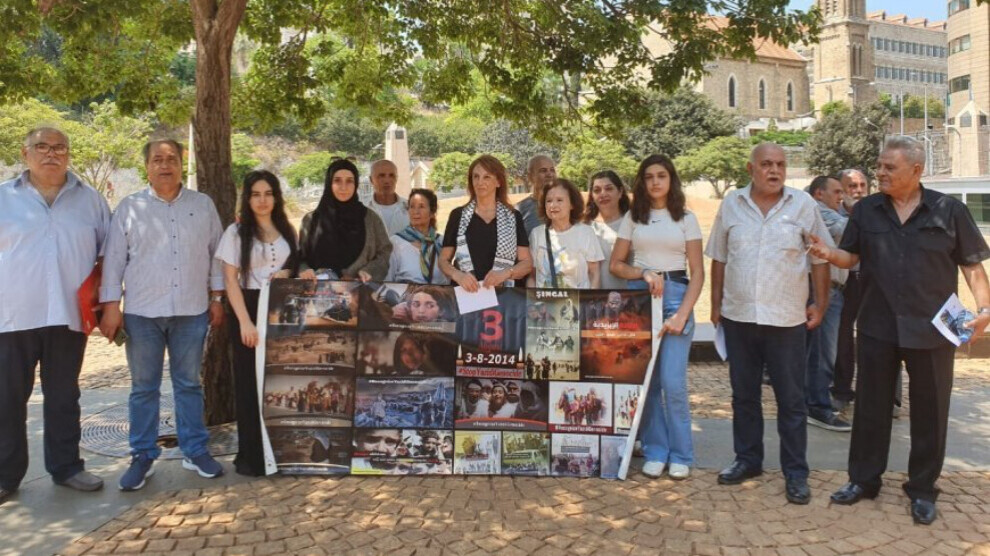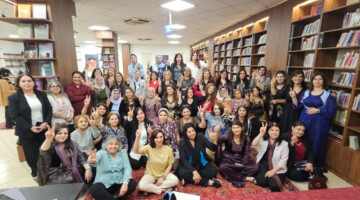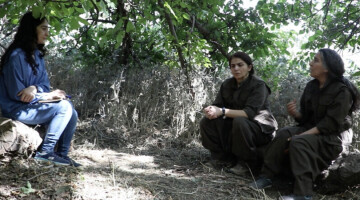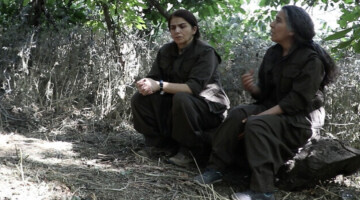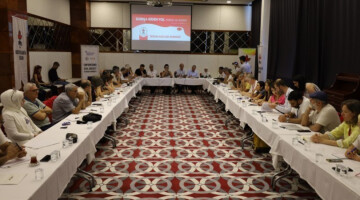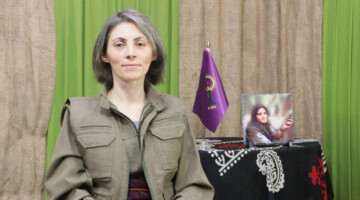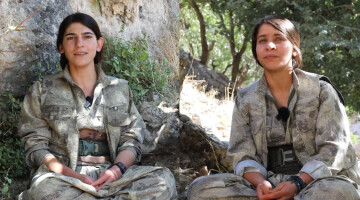A demonstration was held by women's organisations in front of the United Nations (UN) building in Beirut, the capital of Lebanon, calling for the prosecution of the perpetrators of genocide in Shengal (Sinjar) in 2014.
The action was promoted by the Women's Life Foundation, Newroz Community and Culture Foundation and Werde Butrus-Equality for Women's Affairs Association.
Lebanese and Palestinian women gathered in front of the UN to express their support for the resistance of Yazidi women and to call for the perpetrators of the genocide attacks of 2014 to be held to account.
Speaking at the protest, Dr Marî El Dibis, Co-President of Werde Butrus-Equality for Women's Affairs Association, recalled that the fate of thousands of Yazidi women is still unknown since the genocide ten years ago and called for concrete measures.
Background: Genocide of the Yazidis in Shengal
On 3 August 2014, the Islamic State attacked the Shengal region in northern Iraq with the aim of wiping out the Yazidi community, which had already been persecuted for centuries. Through systematic massacres, rape, torture, expulsion, enslavement of girls and women and the forced recruitment of boys as child soldiers, the Yazidi experienced what they call the "Ferman" - the 74th genocide in their history. According to the UN, at least 10,000 people were killed, about half of them children. Even among the thousands who starved, died of thirst or died of their injuries while fleeing to the mountains, almost all of them were children (93 percent). ISIS forced boys as young as seven to work as child soldiers in its training camps. Girls were raped and sexually enslaved, and more than 400,000 people were driven from their homes.
According to estimates by the Yazda organization, around 2,700 Yazidi are still missing today, including around 1,300 who were children at the time of their abduction. Many of them are still systematically raped and kept and sold as slaves. Therefore, this genocide in its form also represents a femicide. The organization Nadia's Initiative assumes that 300 to 400 girls and boys under the age of 18 are still in the hands of ISIS. More than 3,500 Yazidi have been rescued, including 2,000 children.

